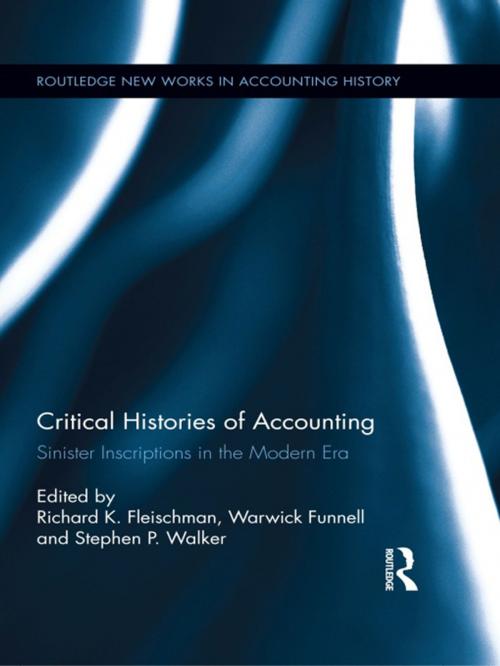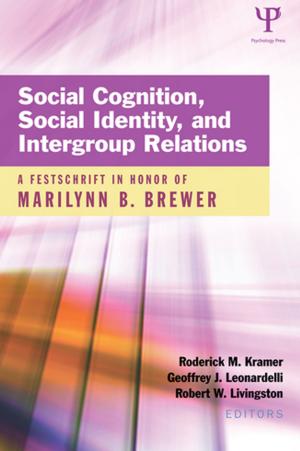Critical Histories of Accounting
Sinister Inscriptions in the Modern Era
Business & Finance, Business Reference, Business Ethics, Accounting| Author: | ISBN: | 9781136241574 | |
| Publisher: | Taylor and Francis | Publication: | April 2, 2013 |
| Imprint: | Routledge | Language: | English |
| Author: | |
| ISBN: | 9781136241574 |
| Publisher: | Taylor and Francis |
| Publication: | April 2, 2013 |
| Imprint: | Routledge |
| Language: | English |
The critical tradition in accounting historiography has come to occupy a prominent place in the discipline’s academic scholarship. Some critical literature has confronted the responsibility of accounting and accountants in precipitating contemporary crises, such as the audit failures that spawned Sarbanes-Oxley and the world-wide recession. Certain contemporary issues have long histories, such as the difficulties encountered by women to break the glass ceiling in public accounting, and the suffering of indigenous peoples under the imperialistic yoke. Other episodes in accounting’s long history are seemingly more divorced from the present, but in reality they all have contemporary significance. Slavery in the New World, for example, although abolished more than a century ago, is still rampant in parts of the world, albeit less formally. Critical accounting historians feel it a duty to harken to the "suppressed voices" of the past, those groups of people who had no access to an accounting record – women, persons of color, indigenous populations, alienated proletarians, victims of governmental incompetence and graft, and many voiceless others.
Critical Histories of Accounting: Sinister Inscriptions in the Modern Era draws on the foremost work in this developing literature, both that authored by the co-editors of this volume, and that written by others. Editors Richard K. Fleischman, Warwick N. Funnell, and Steve Walker have written extensively about "the dark side of accounting," gauging the complicity of those performing accounting functions in episodes in human history that are at worst evil and at best reprehensible. The editors have also hand-selected a series of historical and contemporary episodes that have been critically investigated by the wider accounting history community, preceded by a thorough introduction.
The critical tradition in accounting historiography has come to occupy a prominent place in the discipline’s academic scholarship. Some critical literature has confronted the responsibility of accounting and accountants in precipitating contemporary crises, such as the audit failures that spawned Sarbanes-Oxley and the world-wide recession. Certain contemporary issues have long histories, such as the difficulties encountered by women to break the glass ceiling in public accounting, and the suffering of indigenous peoples under the imperialistic yoke. Other episodes in accounting’s long history are seemingly more divorced from the present, but in reality they all have contemporary significance. Slavery in the New World, for example, although abolished more than a century ago, is still rampant in parts of the world, albeit less formally. Critical accounting historians feel it a duty to harken to the "suppressed voices" of the past, those groups of people who had no access to an accounting record – women, persons of color, indigenous populations, alienated proletarians, victims of governmental incompetence and graft, and many voiceless others.
Critical Histories of Accounting: Sinister Inscriptions in the Modern Era draws on the foremost work in this developing literature, both that authored by the co-editors of this volume, and that written by others. Editors Richard K. Fleischman, Warwick N. Funnell, and Steve Walker have written extensively about "the dark side of accounting," gauging the complicity of those performing accounting functions in episodes in human history that are at worst evil and at best reprehensible. The editors have also hand-selected a series of historical and contemporary episodes that have been critically investigated by the wider accounting history community, preceded by a thorough introduction.















